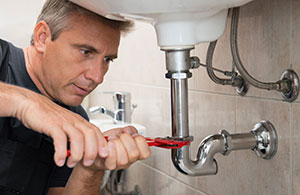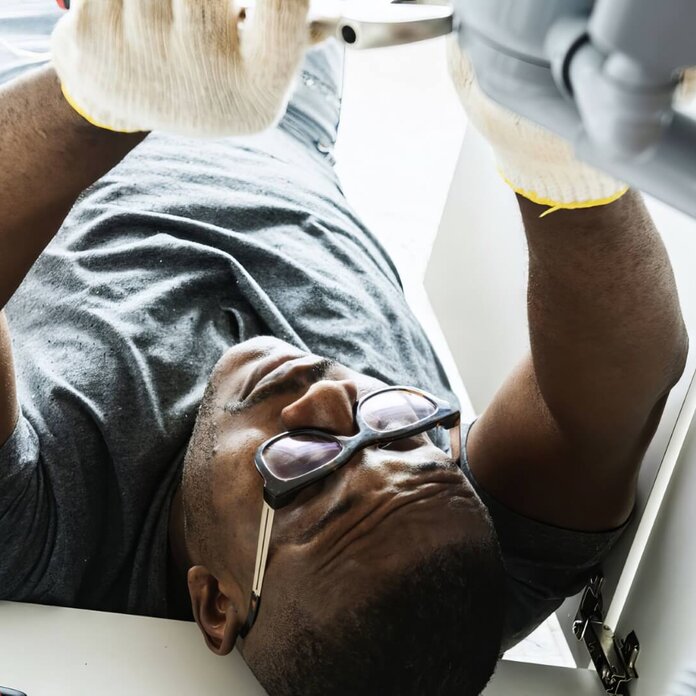The writer is making several good pointers about Plumbing Emergencies: Tips on What To Do Before in general in the content further down.

Pipes emergencies can strike at any time, triggering stress and possible damage to your home. Whether it's a burst pipe, a clogged drainpipe, or a leaking faucet, understanding how to take care of the circumstance up until a professional plumbing arrives can conserve you from more issues. This article provides crucial emergency plumbing tips to aid you minimize damages and restore control during a pipes dilemma.
Turn Off the Water Supply
The very first step in any kind of plumbing emergency is to shut down the water. For local problems, such as a leaking faucet or commode, switch off the shutoff near the fixture. When it comes to a significant leak or burst pipeline, situate your home's primary water shut-off valve and turn it off quickly. Recognizing the place of these valves beforehand can conserve beneficial time during an emergency.
Address Tiny Leaks with Short-term Fixes
Tiny leaks can rapidly come to be substantial problems if left uncontrolled. Make use of these short-term solutions up until professional aid shows up:
While these repairs aren't permanent, they can aid reduce water loss and damages.
Unclog Drains Securely
A stopped up drain can be an irritating and messy problem. Here's exactly how to tackle it:
If these approaches don't function, avoid making use of extreme pressure, as it may get worse the blockage.
Take Care Of Overflowing Toilets
An overflowing commode can cause instant chaos. Right here's what you should do:
Shut Off Your Water Heater
In specific emergency situations, such as a ruptured pipeline, it's wise to shut off your water heater. This stops getting too hot or damages to the device when water stops flowing. Turn off the power supply to the water heater (electric or gas) and allow it cool off to stay clear of possible threats.
Temporarily Stop a Burst Pipe
A burst pipe can result in considerable water damage in minutes. To reduce the issue:
Call a specialist plumbing promptly to resolve the problem permanently.
Manage Frozen Piping Meticulously
In colder climates, icy pipelines are an usual emergency. If you think a frozen pipeline:
Stop Additional Damages
Taking quick action to decrease damages can conserve you time and money in the long run. Here's how:
. Have an Emergency Situation Pipes Set
Prepare a basic pipes emergency situation kit to handle small problems efficiently. Your package must include:
Having these tools on hand can make a considerable distinction in your capability to take care of emergencies.
Know When to Call a Specialist.
While quick fixes can help momentarily, certain pipes issues call for immediate specialist attention. Call a plumbing if:.
Quickly speaking to a professional guarantees the concern is dealt with properly and prevents additional problems.
Final thought.
Pipes emergency situations can be overwhelming, but with the best understanding and devices, you can take care of the scenario effectively up until aid shows up. By turning off the water, attending to small leakages, and utilizing temporary solutions, you can reduce damage and maintain your home safe. Bear in mind, these ideas are momentary services; always get in touch with an accredited plumbing to handle the origin of the issue. Preparation and fast reasoning are your ideal allies in any type of plumbing emergency.
8 Helpful Tips for Managing Plumbing Emergencies at Home
If your plumbing system hasn’t failed once, wait for it because almost everyone has a story to tell. Sometimes, it could be simple emergencies such as a leaking pipe, a blocked cistern, or even a big burst pipe. In situations like this, you need to have some handy tips to save you some money and from possible damages.
Take care of minor issues early.
Sometimes, you could have avoided an emergency by taking proactive measures while it was still early. Some major plumbing emergencies can be a result of an ignored minor issue. We recommend that you have items like plumbing tapes and other related items. A plumbing tape can allow you to manage minor leaks before the plumber arrives.
Cut off the water supply.
This tip is essential in almost any type of leakage problem. For problems like minor leakages in the toilet or kitchen, turn off the supply that takes water to the affected pipes. If the leakage is a major pipe, you must shut off the supply valve to the entire building. This will help you avoid flooding your home and neighbors if you share a flat.
Know your plumbing system
Folks typically move into a new apartment without understanding the water supply around the building. This can prove disastrous if a water emergency arises and the plumber is far away. The previous tip will prove useless if you don’t practice this one. More importantly, know where your water shut-off valve is located – you’ll need that knowledge to prevent potential home floods.
Have some common handy tools
There are lots of plumbing emergencies that you can handle without hiring a plumber. That’s why you must keep some tools available always. Some tools that you can use to fix simple plumbing emergencies easily include plumbing tapes, screwdrivers, thread seal tapes, plungers, pliers, tape measures, and rubber gloves.
Insulate your pipes from cold
You’ll save yourself from many plumbing expenses if you protect your water pipes from the cold. This is because of the harmful effects that cold weather can have on your pipes. During winter, your pipes can burst from being overly expected to freezing temperatures. So, make sure insulators are there to keep the pipes working correctly.
Avoid practices that will clog your toilet.
Many people indulge in practices that can damage the plumbing system of the entire building. One of these is when they use their toilet to dispose-off garbage. They flush all kinds of things, such as paper towels, bandages, hairs, female sanitary products, etc., down the toilet. This will block your toilet in the long run, incurring unnecessary expenditures. Dump such waste in the trash instead.
Check your dials regularly.
Sometimes, there could be leakages in your home without noticing them in time. So, constantly monitor your water meter dial. If the dial is reading when there is nobody using water, this is an indicator that there is leaking. Check for leaks immediately. Call a plumber as soon as possible if you can’t find any.
https://www.constructionplacements.com/8-helpful-tips-for-managing-plumbing-emergencies-at-home/

I have been very inquisitive about Plumbing Emergencies: Tips on What To Do Before and I'm hoping you liked my blog posting. I beg you set aside a second to promote this blog if you appreciated it. Thank you for being here. Revisit us soon.
Click Here